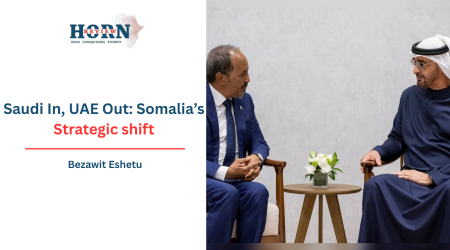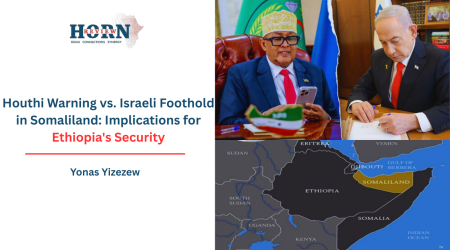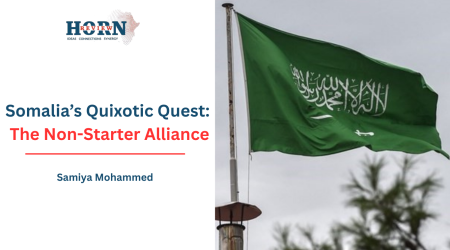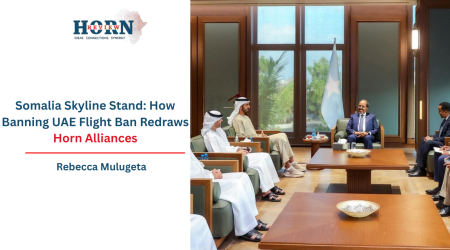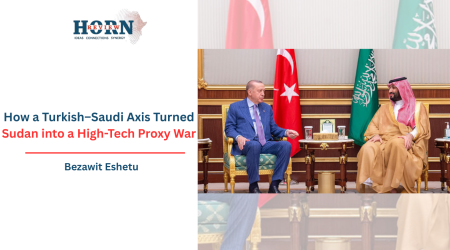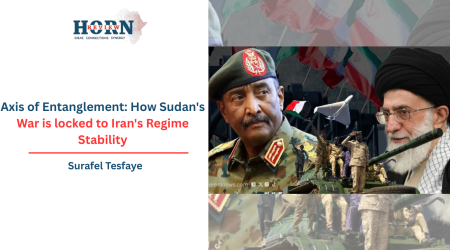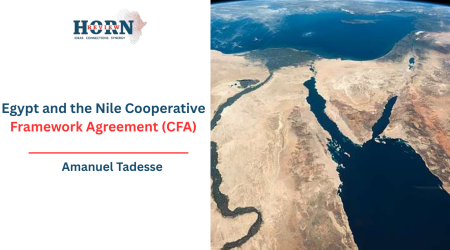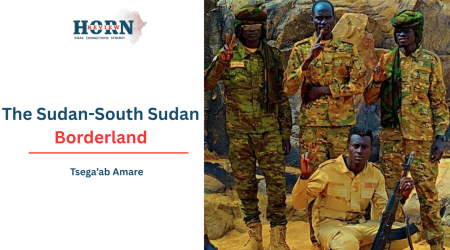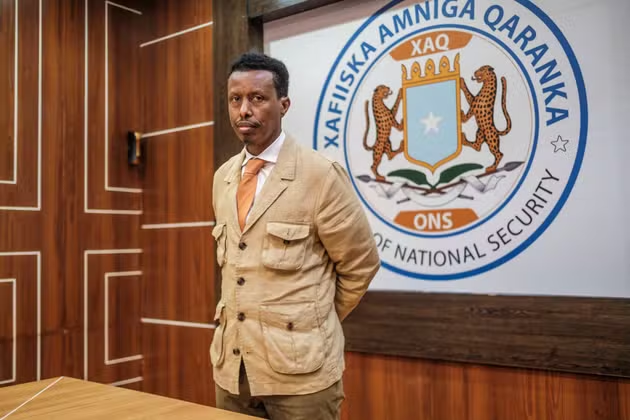
30
Jul
Hussein Sheikh-Ali’s Departure and Somalia’s Security Crisis
The recent departure of Hussein Sheikh-Ali from his post as Somalia’s National Security Advisor comes at a time of growing insecurity and political fragmentation, raising pressing questions about the state’s capacity to govern and respond to the threat posed by Al-Shabaab. While multiple channels frame his exit as a resignation, the surrounding circumstances, marked by scandal, strategic failures, and internal divisions, point to a deeper crisis in Somalia’s security architecture.
Sheikh-Ali, a central figure in shaping Somalia’s security policy across successive administrations, had until recently been one of the key architects of the federal government’s counterterrorism strategy. His tenure was marked by efforts to strengthen national security institutions, increase inter-agency coordination, and push for international legitimacy, most notably culminating in the lifting of the decades-long United Nations arms embargo in December 2023. That milestone was seen as a turning point in Somalia’s quest to rebuild a functional and autonomous national army. Yet less than two years later, that optimism appears to have unravelled, overshadowed by operational setbacks, intensifying insurgent activity, and fractured relations between federal and regional authorities.
The controversy surrounding Sheikh-Ali’s exit centres on a July 2025 arms shipment scandal, in which Puntland authorities intercepted a Comoros-flagged cargo vessel off the coast near Bareeda. The ship was reportedly carrying undeclared military equipment destined for Mogadishu, prompting allegations of opaque arms procurement practices and exacerbating mistrust between the federal government and Puntland. The latter described the incident as a necessary security intervention, while Mogadishu decried it as an act of piracy, revealing the depth of intra-state tensions that continue to undermine Somalia’s federal project.
Reports diverge on whether Sheikh-Ali resigned voluntarily or was dismissed in connection with the fallout from the incident. While he publicly announced his resignation via social media, claiming the title of “former adviser,” various outlets and insider sources have suggested that his departure was the culmination of mounting dissatisfaction from the president and other senior figures. This discontent was not solely tied to the arms shipment but also reflected broader frustration over the stagnation of Somalia’s counterinsurgency campaign.
Indeed, the broader security landscape has dramatically worsened in 2025, reversing many of the limited gains made during the federal government’s earlier offensives. Since April, Al-Shabaab has launched a renewed campaign—dubbed the Shabelle Offensive—recapturing strategic towns in the Middle and Lower Shabelle regions, including Sabiid and Anole, less than 50 kilometers from the capital. The group’s ability to retake territory without significant resistance, impose local taxation, and disrupt key supply routes reflects the fragility of the state’s territorial control and the limitations of its military strategy.
Somalia’s external partners have also faced setbacks. African Union peacekeepers, particularly Ugandan troops under the AUSSOM mandate, have suffered deadly attacks, including suicide vehicle bombings that killed dozens. These losses have led to troop withdrawals from exposed positions, further emboldening militant forces. While Somali and U.S. airstrikes continue, their tactical impact appears marginal in the face of Al-Shabaab’s adaptive insurgency and growing financial and recruitment base. According to recent conflict monitoring reports, the group remains the wealthiest al-Qaeda affiliate and has successfully expanded its operational footprint across south-central Somalia.
At the political level, coordination between the federal government and key member states such as Puntland and Jubaland has deteriorated to a point of near-collapse. Both states boycotted the National Consultative Council meeting in May 2025, forcing Villa Somalia to reschedule multiple times. Their absence at the conference and subsequent confrontations—including the seizure of the arms shipment—highlight the unresolved contest over federalism, resource control, and security command. Without coherent national alignment, Somalia’s fragmented institutions remain ill-equipped to confront the multi-front challenges posed by terrorism, governance deficits, and intergovernmental mistrust.
In this context, the resignation—or removal—of Sheikh-Ali is more than a bureaucratic reshuffle; it is a symptom of deeper institutional decay. His exit creates a vacuum in a role that demands not only technical expertise but also political tact to navigate the layered tensions within Somalia’s security sector. Whether his departure will pave the way for reform or further instability remains unclear. However, it has undoubtedly disrupted an already strained leadership structure, at a time when coordination, credibility, and clarity of command are sorely needed.
What is evident is that Somalia’s security crisis cannot be resolved through piecemeal leadership changes or reactive military responses. The erosion of trust between federal and regional actors, the failure to consolidate recent territorial gains, and the opacity surrounding arms procurement and deployment reveal systemic dysfunction. As Al-Shabaab deepens its territorial and ideological entrenchment, the political class remains locked in internal disputes, diverting attention from the collective threat to statehood.
If Somalia is to reverse this trajectory, it must confront not only the armed insurgency but also the crisis of political coherence and strategic vision. Without a renewed commitment to federal cooperation, institutional transparency, and operational discipline, even the most qualified security officials will find themselves overwhelmed. The departure of Hussein Sheikh-Ali may soon be forgotten, but the structural deficiencies it exposes will continue to shape Somalia’s uncertain path forward.
By Mahder Nesibu, Researcher, Horn Review
Sources
- Somalia Demands Release of Arms Cargo Ship Seized by Puntland – The Defense Post
- https://twitter.com/RAbdiAnalyst/status/1949510357669519555
- https://twitter.com/CirkaNews/status/1947133978684563670
- Al-Shabaab’s Trajectory: Can It Emerge as Somalia’s Taliban or HTS 2.0? A Strategic Analysis of Potential Futures – IFA

